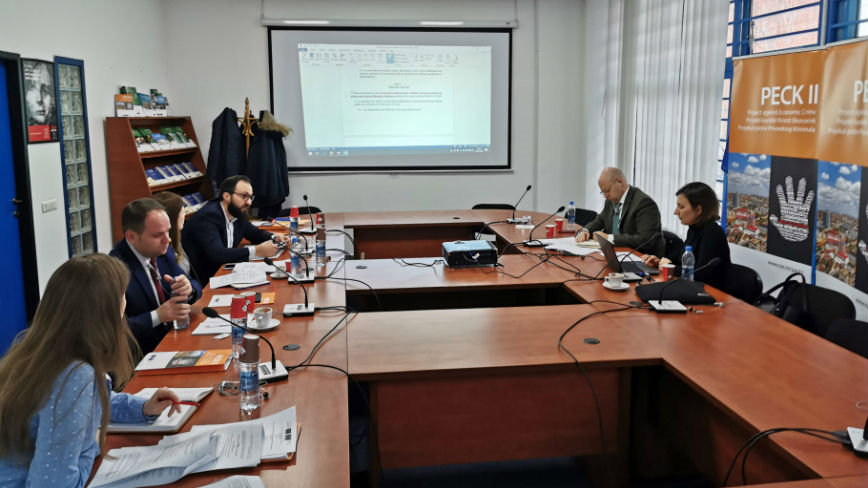On 10-13 February 2020, in Pristina, Kosovo, the staff of the Anti-Corruption Agency benefited from expert advice and mentoring, provided by PECK II, on the protection of whistleblowers. The activity had two objectives: to develop the skills and capacities of the staff of Division on Protection of Whistleblowers of the Anti-Corruption Agency; and to discuss recommendations on the draft Regulation on receiving and dealing with whistleblowing reports. This provided the Agency’s staff with the opportunity to learn from good European and international practices on handling whistleblowing reports, appropriate strategies for communication with whistleblowers, and managing whistleblowers expectations. .......
As a result of the activity, various tailor-made tools necessary for proper handling of whistleblowing reports were developed jointly by the PECK II expert and the KAA staff. One of these tools is a user-friendly explanation of the Law on Protection of Whistleblowers that can be used in the website and in promotion materials, as well as guidance and instructions for individuals to raise concerns.
To advance the implementation of the Law on the Protection of Whistleblowers, participants discussed the provisions of the Regulation on receiving and dealing with whistleblowing reports in the public sector. As a next step, it was noted that the current context and institutional set up in Kosovo is complex and it thus requires further consultations and agreement with a wider group of stakeholders. The recommendations provided by the Project in line with the Council of Europe Recommendation CM/Rec(2014)7 on the Protection of Whistleblowers will facilitate the advancement of the drafting process and contribute to the enhancement of this new institution in Kosovo.
_________
*This designation is without prejudice to positions on status, and is in line with UNSCR 1244 and the ICJ opinion on the Kosovo Declaration of Independence.




